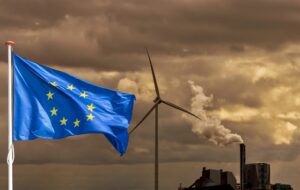On Wednesday, July 6, MEPs will be asked to vote on a proposal to reject the European Commission’s delegated act that includes gas and nuclear within the taxonomy of sustainable activities.
A taxonomy without gas and nuclear to benefit SMEs
There are several reasons why a taxonomy without gas and nuclear would be beneficial to Italy, particularly for small and medium-sized enterprises (which contribute 41 percent of GDP in Italy).
Recent months have shown the risks associated with fossil fuel price fluctuations and, consequently, the importance of increasing business resilience by converting to less energy-intensive and less fossil-dependent processes.
In Europe, the ability of nation states to transform their energy and production systems becomes a key element in determining which economies will grow and which will not. From this perspective, the creation of production chains related to green technologies brings economic development and increased employment resilient to shocks. But to materialize this transformation, companies must have access to significant capital. In this sense, small and medium-sized Italian companies can remain competitive only if they are put in a position to access private capital to finance the transformation of their production processes.
Taxonomy is one tool that can provide this capital. In fact, among the sectors that the taxonomy explicitly includes are key sectors of Italy’s industrial fabric, including construction, transportation and logistics, as well as the energy efficiency supply chain (e.g., heat pumps, in which Italy is an international leader). Additional economic activities related to biodiversity, water, pollution prevention, and especially the circular economy will be added to this list next fall.
Taxonomy and economic risk for Italy
The taxonomy allows easier and lower-cost access to capital for ‘green’ innovation. The inclusion of gas and nuclear would, however, create a huge demand for funds on plants that-in the case of nuclear-need financing measured in billions of euros. This demand for capital would reduce the availability, and potentially raise the costs, for small and medium-sized enterprises and alternative technologies that Italy urgently needs, such as renewables, energy efficiency and electric mobility.
Italy would not be among the beneficiaries of private funds earmarked for gas or nuclear. In fact, there is no nuclear program in our country and, unlike the rest of Europe, our electricity system requires modest investments in the gas sector, since it is already supported by the capacity market.
France, on the other hand, which has 58 nuclear reactors nearing end-of-life and an ambitious new reactor construction program1, would be the main beneficiary of a taxonomy with gas and nuclear. Central and Eastern European countries, and Germany in particular, which have yet to eliminate coal from their energy mix, would also benefit from millions of euros of green capital to transition to gas, distracting from a direct shift from coal to clean energy, which Italy has instead already completed and abundantly financed.
Would a green taxonomy eliminate investments toward gas and nuclear
Excluding nuclear and gas from the taxonomy does not mean preventing funding for nuclear and gas in Europe. Such financing remains possible for both public and private capital. If the goal is the creation of dedicated funding for these technologies at the European level, however, this should be done through an open and shared debate, starting from a principle of fair redistribution of resources and considering the short-term role assigned to gas by REPowerEU in the diversification of Russian sources. The inclusion of gas and nuclear in the taxonomy does neither of these things and therefore remains an unsuitable tool for this purpose.
Next July 6, the voting choice of the Italian parliamentarians in Brussels, of whatever political color they may be, should be based not on ideologies or on the preference of one specific energy technology over others, but on the consideration that a taxonomy with gas is nuclear does not suit Italy and would deprive Italian small and medium-sized enterprises of the resources they need. These resources are needed to enable the Italian industrial fabric to transform in order to meet the challenges of decarbonization and high energy costs.
Photo CC-BY-4.0: © European Union 2022– Source: EP






